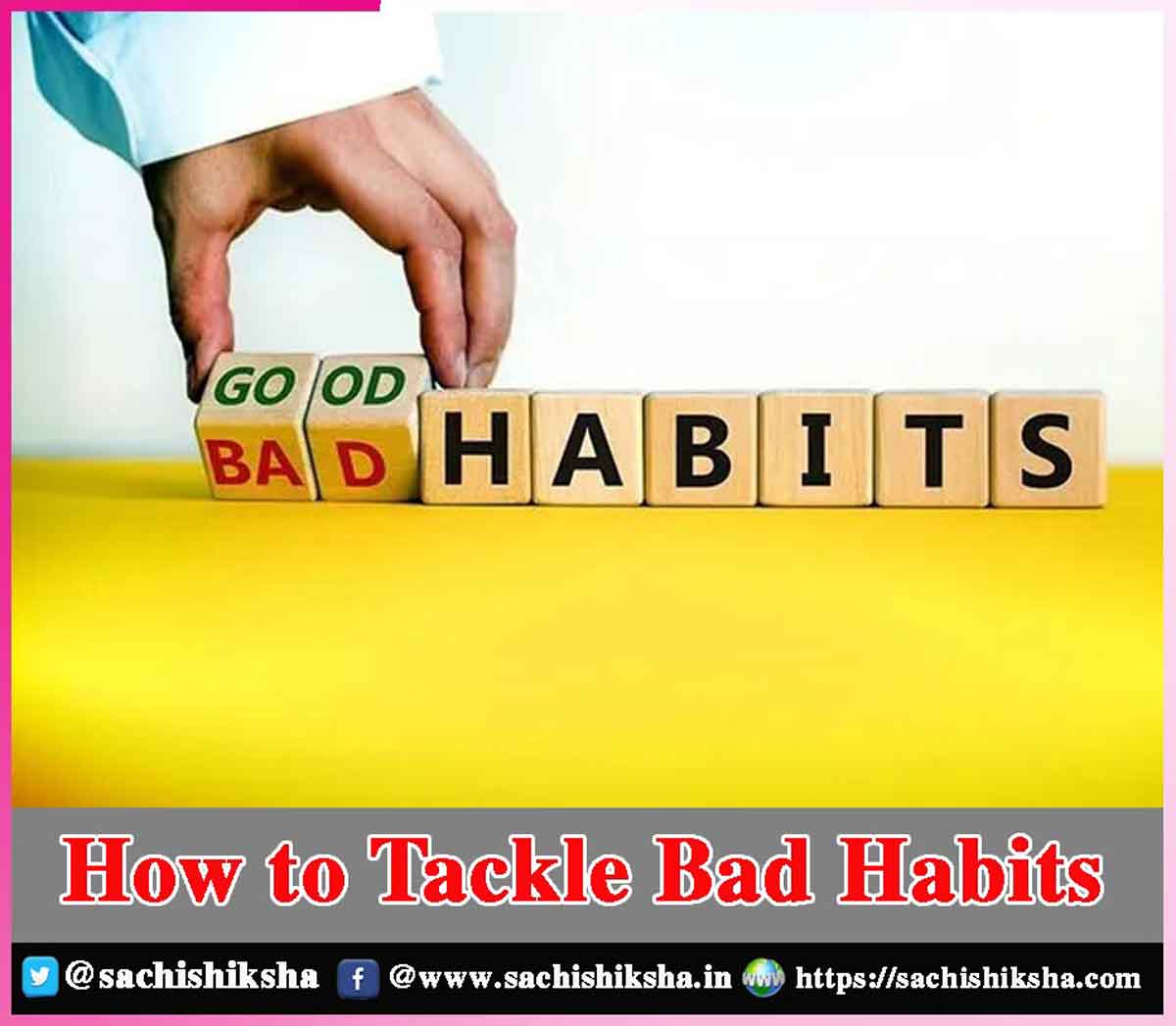How to Tackle Bad Habits
Introduction: Habits are an important aspect of the way you live. Some allow you to set the mind on schedule, boosting productivity and lowering your mental workload. Other routines help you stay healthy, such as having an appropriate lunch or going to the workout on your way back from work.
Regularly eating sweet chocolates or browsing social media in order to divert you from a difficult work has a reverse effect. And impulses or dependency, such as smoking or spending too much, could endanger your health. Realizing how habits develop and last is essential for gaining the knowledge to break negative habits, as it provides methods for reinforcing good behaviors and curbing bad ones.
Table of Contents
Undesirable Habits

Negative Habits of School Kids
School kids frequently engage in negative habits such as drinking harmful refreshments, smoking, skipping sleep, failing to exercise, and so on. Our bad habits are defined by self-awareness, introspection, and a comprehension of how they affect our goals and lives. Bad habits can’t determine a person’s identity; rather, they must be handled and substituted with constructive habits.
Habits Develop Through Practice
Habits can develop through practice. They are a common part of life and are often beneficial. Every morning, we wake up, shower, style our hair, and clean our teeth without even realizing it. People can drive known roads on cognitive autopilot without worrying about the signs. When activities become programmed, we gain an advantage since the brain does not need to use conscious effort to complete the task. This allows our brains to concentrate on diverse topics.
Positive Experiences & Bonus Pathways
Habits can also form when positive or rewarding experiences activate the brain’s “bonus” pathways. This can lead to potentially harmful habits such as binge eating, smoking, drug or alcohol addiction, betting, and repetitive use of electronics and social networks.
Difficult to Recognize
Bad habits are not always simple to recognize. They may break into your regular activities without you being aware of it. Let’s begin by look at some poor behaviors that may interfere with your capacity to demonstrate up at place of employment and preserve your health.
Performing Multiple Tasks During Meetings:
Mixing multiple activities at once may feel like you’re working at full capacity is actually splitting your focus to impair interest and persistence. Browsing emails during the conference call can cause you to overlook important details (often without you noticing it), resulting in misunderstandings, oversights, or missed deadlines.
Avoiding Breaks:
Completing activities without having breaks appears to be a sign of commitment and determination. However, this continuous approach reduces your mental resources, reducing your ability to concentrate and work efficiently. At some point, you may experience exhaustion, making activities appear more daunting than they are.
Ignoring Input:
It is natural to favor positive reinforcement. After all, everyone enjoys a self-worth lift. But helpful criticism also illuminates the path to continued progress. If you neglect to address areas for development identified by teammates or leaders, you could result in blind spots in the way you perform, which can have a detrimental impact on team relations and collaboration. Similarly, it could be perceived as a harmful trait indicating disregard or selfishness.
Procrastination:
Pushing off important duties till the last minute may provide momentary relief from difficult work. Still, it leads to hasty, frequently substandard work performance. This negative attitude degrades the quality of your task and increases tension.
Not Addressing Mental Health:
Ignoring burnout symptoms or putting self-care at the bottom of your to-do list may weigh you down, affecting your job success, relationships, and general life happiness.
Insufficient Sleep Patterns:
Changing your sleep habit sometimes may appear to be innocuous. However, skipping sleep, surfing before bed, or pressing the alarm button on a frequent basis might have an impact on your cognitive ability, emotions, and general health.
The Need of Changing Habits
Bad habits, if not addressed, can degrade the standard of your job, damage relationships, and hamper progress and development. Eliminating harmful habits is more than just increasing your level of efficiency. It is about enhancing your general state of health. Here’s why knowing how to break a poor habit can result in greater personal fulfillment:
Protects Reputation:
Identifying bad habits prior of time help individuals to establish themselves as a reliable part of the team. Proactive learning and personal development strengthen trust and can lead to new possibilities and increased responsibility.
Maintains Your Health:
Getting enough sleep, exercising regularly, and eating a well-balanced diet all help to maintain your mental and physical wellness. These beneficial & new behaviors can result in more energy, improved focus, and general well-being.
Enhanced Self-confidence:
Breaking past patterns and establishing new routines is challenging. The feeling of success you gain from positive behavior modification will give you the courage to face new difficulties.
Conclusion
Understanding how to kick a bad habit and form a better one differs greatly from people to people. Quitting a behavior does not have a time limit; changing it with a better habit falls into the same time range. In order to break a bad habit, you must first be honest with yourself. Determine reasons why you wish to change your habit. Perhaps you wish to improve your performance at work, strengthen connections, or boost your confidence.
















































